Las Vegas doctor Dale Carrison has a background like no other
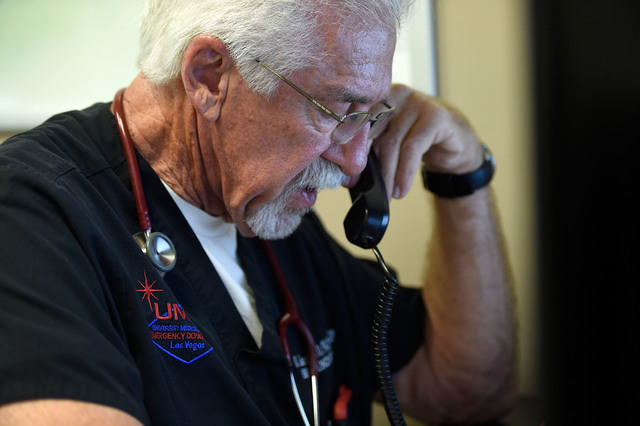
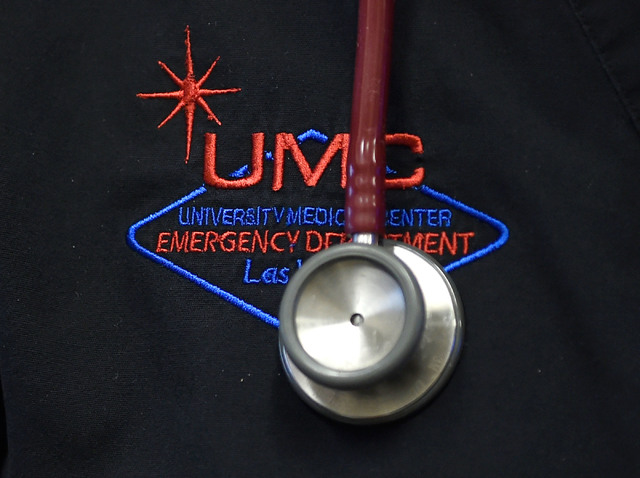
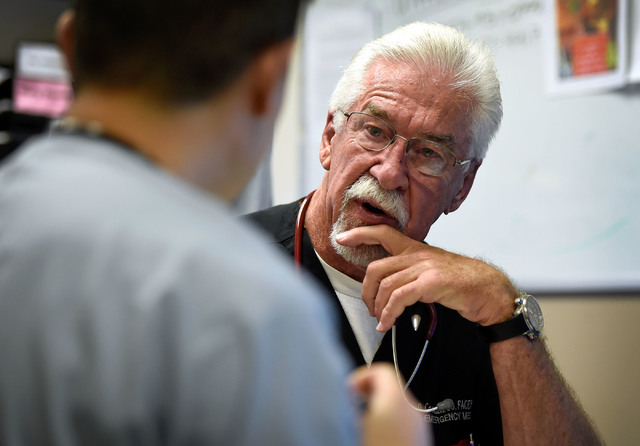
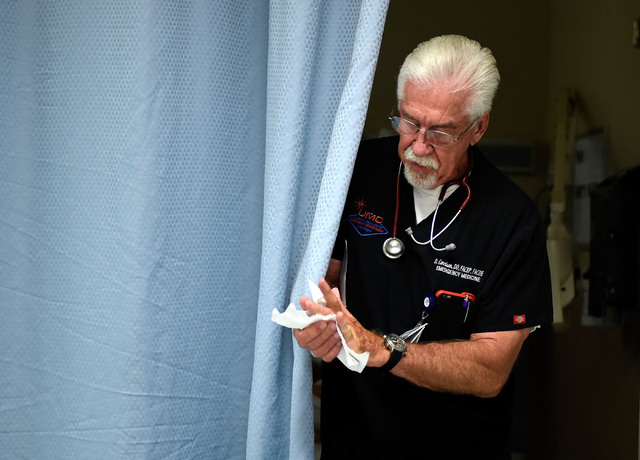

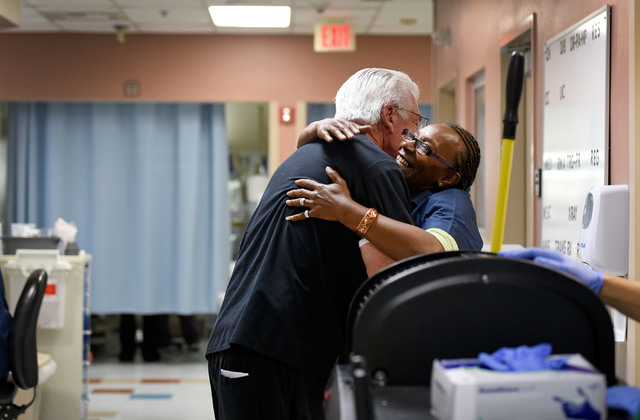
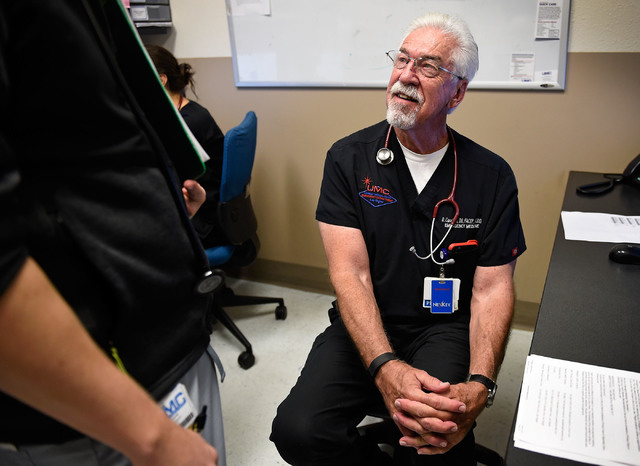
One minute he’s conferring with a young physician about the proper tests for an emergency room patient with pain in his stomach. The next he’s talking to a patient who’s suffered a hernia.
It’s 7 o’clock in the morning Monday, and Dr. Dale Carrison, born when the average wages in the United States were $1,730 per year, is just beginning an eight-hour day. He’ll see one patient after another at University Medical Center.
As usual, the gait of the 77-year-old physician, a former FBI agent who didn’t become a doctor until he was 51, is more run than walk.
“I don’t get any more tired than anyone else,” he says.
You feel tired just listing some of the 14 medical arenas he toils in. In addition to being UMC’s head of the emergency, he’s also chief of staff. He’s a tactical physician for Metro’s SWAT team and medical director for the Las Vegas Motor Speedway, Burning Man and the Electric Daisy Carnival. He also chairs the department of emergency medicine for the University of Nevada School of Medicine.
On Thursday, he’ll be one of five physicians — Drs. Charles Bernick, Michael Crovetti, Don Havins and Edwin Kingsley are the others — honored at the fifth annual Inspired Excellence in Healthcare Awards sponsored by Las Vegas Heals, an organization devoted to improving the delivery of health care. Administrator Bob Cooper is also being honored.
Chances are better than good there will be never be another physician who has a background similar to Carrison’s.
He’s thinking about starting his acceptance speech by saying, “Not bad for a guy who came within one point of not graduating from high school and who flunked out of college the first time.”
His life gives hope to the young who’ve screwed up, and to the not so young living what Thoreau called “lives of quiet desperation.” It’s a story people need to know.
At 16, he blacked out on booze in Pensacola, Fla. When he used gunpowder to blow up garbage cans, he got arrested. By his own admission, he was a screw-up.
While he barely got through school, he did well enough on standardized tests to get into Florida State University in 1958. He flunked out when he couldn’t lay off the bottle.
A stint in the Navy taught him discipline. He became a deputy sheriff in California, graduating from college while working. The FBI noticed his ability to catch wanted fugitives. He ended up investigating the Symbionese Liberation Army, the group that kidnapped newspaper heiress Patty Hearst.
“I’m proof you can overcome your past,” he says. “People want you to succeed. But they have to see you’ll put in the work.’
After five years with the FBI, he got fed up with its bureaucracy and left to help his dad run an auto parts store. Though he enjoyed being close to his father, he didn’t think he was making enough of a contribution to society.
In his mid-40s and depressed, he decided the best way to make a difference was by helping people deal with injuries and sickness. By day he sold fan belts, by night he took science classes to get into medical school.
He did superbly on the entrance test, but ran into age discrimination. He’d get rejection letters saying his age had nothing to do with it. “That told me it had everything to do with it. Why bring it up if it didn’t?”
The College of Osteopathic Medicine of the Pacific in California accepted him. He and his wife and two children often lived in a one bedroom apartment until he got his license to practice medicine.
When UMC wanted him in the ’90s, he was ecstatic. His enthusiasm for emergency medicine was infectious. In his off time, he volunteered to work with organizations where emergency services could be used.
His meteoric rise was underway.
During this week’s award ceremony, he says he’ll remember his midlife crisis and how he changed his life.
“It reminds me that as long as you’re alive, you can do something about the situation you’re in,” he says. “You don’t have to accept it. You can find a way to make yourself productive and happy.”
Contact Paul Harasim at pharasim@reviewjournal.com or 702-387-5273. Follow @paulharasim on Twitter












